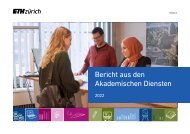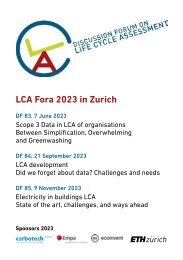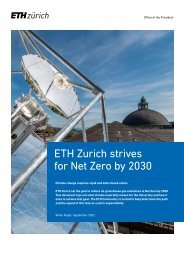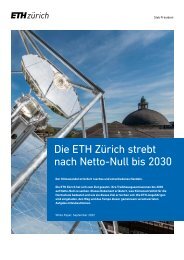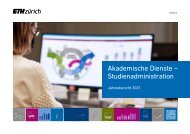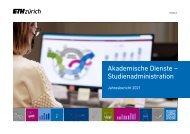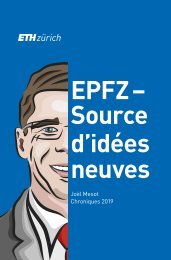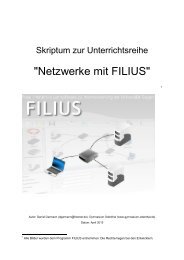Tracer Study Report 2022
The Master of Advanced Studies ETH Mediation in Peace Processes (MAS ETH MPP) is a continuing education program for midcareer professionals seeking to acquire the necessary knowledge, skills, and techniques to mediate violent political conflicts. The MAS ETH MPP seeks to contribute to more effective peace processes and thus a more peaceful and secure world by enabling program graduates to design and run mediation processes using the latest theoretical, methodological, and practical foundations of mediation.
The Master of Advanced Studies ETH Mediation in Peace Processes (MAS ETH MPP) is a continuing
education program for midcareer professionals seeking to acquire the necessary knowledge,
skills, and techniques to mediate violent political conflicts. The MAS ETH MPP seeks to contribute
to more effective peace processes and thus a more peaceful and secure world by enabling program
graduates to design and run mediation processes using the latest theoretical, methodological,
and practical foundations of mediation.
You also want an ePaper? Increase the reach of your titles
YUMPU automatically turns print PDFs into web optimized ePapers that Google loves.
MAS ETH MPP
Tracer Study Report
5
1. Introduction
The Master of Advanced Studies ETH Mediation in Peace Processes (MAS ETH MPP) is a continuing
education program for midcareer professionals seeking to acquire the necessary knowledge,
skills, and techniques to mediate violent political conflicts. The MAS ETH MPP seeks to contribute
to more effective peace processes and thus a more peaceful and secure world by enabling program
graduates to design and run mediation processes using the latest theoretical, methodological,
and practical foundations of mediation.1 Currently, the MAS ETH MPP is globally the only in-depth
program that professionalizes the training of mediators working in peace processes.
The MAS ETH MPP is built on a close partnership between ETH Zurich, the Swiss Federal Department
of Foreign Affairs (FDFA), the United Nations (UN) and the foreign ministries of Germany, Finland,
and Sweden. These partners serve on the program’s Strategic Advisory Board that advises the
program management on the MAS ETH MPP’s relevance to practice, international visibility, long-term
financing and political marketing. The program is formally hosted by the Department of Humanities,
Social and Political Sciences (D-GESS) at ETH Zurich. The MAS ETH MPP is also supported by
international organizations, such as the European Union (EU) and the Organization for Security and
Co-operation in Europe (OSCE).
In practical terms, the MAS ETH MPP entails 1,800 hours of study (60 points in the European Credit
Transfer and Accumulation System, ECTS), consisting of six face-to-face modules of 2-3 weeks in
length (a total of 15 weeks), extensive self-study, and two written papers over a two-year period.
The program is organized so that students can work part-time throughout their studies. The first
cycle of the program ran from 2017 until 2019, the second cycle from 2019 until 2021, and the third
cycle started in 2021 with expected graduation in 2023 (number of students 2017-2019: 18, 2019-
2021: 21, 2021-2023: 20).
The program’s students are highly qualified international professionals with diverse experience in
peace mediation and varied academic backgrounds with at least a Master’s degree. Given the nature
of the program’s target audience, admissions are highly selective with acceptance rates below 10%.
Pedagogically, the program utilizes a multidisciplinary approach and combines a strong academic
grounding with an explicitly robust practitioner orientation.2 The program trainers are experts on
mediation research, policy, and practice from a broad international network and four different ETH
departments.
Following the conclusion of the first cycle of the program in 2019, ETH Zurich developed a tracer
study in order to get a sense of the program alumni’s career paths and the role of the program
therein. Additionally, the tracer study was designed to understand better the relevance of the
program to the alumni in their work and assess what impact the program has had on the students’
professional development. The information gathered from the tracer study is useful in evaluating
the overall MAS ETH MPP program as well as in providing insights for program admissions in terms
of identifying the most suitable student profiles for future cycles. This publication is the outcome of
the first tracer study conducted in the context of the MAS ETH MPP. As explained later in this report,
the study was informed by semi-structured interviews and an online survey shared with the first
student cohort that graduated from the program in 2019.
In terms of structure, this tracer study report is divided into a few sections. Following this
introduction, Section 2 provides an overview of the methodology of the study. The third section
provides an overview of the program’s first student cohort and their motivations for joining the
program. That section is followed by a summary of key insights that emerged from the tracer study.
These insights are some of the broader highlights of the study, whereas the final section delves
deeper into the five specific areas of the study (competence, career path and motivation, learning,
mediation community, and perspectives on the program) to give an account of the most significant
findings in each of them. A few annexes are included at the end of the report.
1 Graduates of the program should
be well versed in both the theory and
practice of mediation in peace processes.
This includes a detailed understanding
of (a) contributing factors
to armed conflicts and mediation; (b)
actors in conflicts and peace processes;
(c) content of peace agreements;
and (d) phases of peace processes.
Graduates should also acquire and
master practical mediation skills and
techniques, including communication,
relationship building, conflict analysis,
and the design, implementation, and
assessment of mediation processes.
2 The program’s pedagogical
approach is included in Annex 6.4



